1 Define your needs! So, you´re ready to buy in Spain. This is where the fun really begins. Whether or not you are familiar with the area, you need to get yourself over here, look around and decide what type of property you want.
2 Begin the search! Talk to an agent you trust and feel comfortable with and they will source the right properties for you. They have access to hundreds of resale properties, bank repossessions, property direct from the builders and through their links with other agents. Don´t forget they often only show a sample of what they have online, so email or visit them with your requirements.
4/ Get finance. Should you need financing in Spain, agents can talk to banks and brokers, get pre-approval for a loan for you so that once you see exactly what you want, you are ready to move on it.
5/ Securing the Property. Once you´ve found you the perfect property, an agreement is drawn up between buyer, sellers and any agent involved so that the price is secured and both parties know that, all things going according to plan (ie. survey, loan application etc) the property is sold and off the market.Often buyers will speak to their lawyers at this stage to ensure that their deposit is protected in the unlikely event that something goes wrong. You sign the paperwork, pay the deposit and the hard work is done.
6/ Closing. Your legal representatives will ensure you do not inherit a house with electricity bills, water or community fees owed. The buyers and sellers get together in the local Notary to complete. You hand over the balance of the money in front of the solicitor, seller, possibly banks and certainly the notary. In return, you get the key to your dream home in Spain…
7/ Costs. The costs of buying a house depend on whether the house is a new build property, or a re-sale. In all cases, on top of the purchase price, you will need to pay the Notary Fees and Registration.
8/ Notary Fees and Registration. This is the charge that the Notary will make for the Purchasing/Selling process and paperwork. This covers the printing and amending of the “Escritura” (Title Deeds) and the Notary witnessing the signing of it. The Land Registry will make a charge for the registering of the change of ownership details of the property. These two may total 1,300€ together.
9/” Impuesto de Transmisiones”: Resale Properties. This is calculated at 7% of the value of the house as stated on the Title Deeds, for Re-Sale Properties only.
10/ IVA: New Build Properties. IVA is paid directly to the builder, either in stages with the payments, or at the final payment at the rate of 7%. There is also a tax levied for the administration involved in the registration of new build properties of 1% of the value of the house as stated on the title deeds. (So 8% tax in total on new properties).
11/ Legal fees. You will also have fees for the legal work involved in preparing the documentation ready for a house purchase, and ensuring the house is free of all debts and encumbrances. (Cost varies). You may also need a NIE number, Power of Attorney and should certainly consider making a Will in Spain to cover your new property. Any firm of lawyers should be able to give you a clear and detailed breakdown of the costs once you have found a property. We recommend Spanish Solutions. www.spanishsolutions.net @spainsolicitor
2 Begin the search! Talk to an agent you trust and feel comfortable with and they will source the right properties for you. They have access to hundreds of resale properties, bank repossessions, property direct from the builders and through their links with other agents. Don´t forget they often only show a sample of what they have online, so email or visit them with your requirements.
4/ Get finance. Should you need financing in Spain, agents can talk to banks and brokers, get pre-approval for a loan for you so that once you see exactly what you want, you are ready to move on it.
5/ Securing the Property. Once you´ve found you the perfect property, an agreement is drawn up between buyer, sellers and any agent involved so that the price is secured and both parties know that, all things going according to plan (ie. survey, loan application etc) the property is sold and off the market.Often buyers will speak to their lawyers at this stage to ensure that their deposit is protected in the unlikely event that something goes wrong. You sign the paperwork, pay the deposit and the hard work is done.
6/ Closing. Your legal representatives will ensure you do not inherit a house with electricity bills, water or community fees owed. The buyers and sellers get together in the local Notary to complete. You hand over the balance of the money in front of the solicitor, seller, possibly banks and certainly the notary. In return, you get the key to your dream home in Spain…
7/ Costs. The costs of buying a house depend on whether the house is a new build property, or a re-sale. In all cases, on top of the purchase price, you will need to pay the Notary Fees and Registration.
8/ Notary Fees and Registration. This is the charge that the Notary will make for the Purchasing/Selling process and paperwork. This covers the printing and amending of the “Escritura” (Title Deeds) and the Notary witnessing the signing of it. The Land Registry will make a charge for the registering of the change of ownership details of the property. These two may total 1,300€ together.
9/” Impuesto de Transmisiones”: Resale Properties. This is calculated at 7% of the value of the house as stated on the Title Deeds, for Re-Sale Properties only.
10/ IVA: New Build Properties. IVA is paid directly to the builder, either in stages with the payments, or at the final payment at the rate of 7%. There is also a tax levied for the administration involved in the registration of new build properties of 1% of the value of the house as stated on the title deeds. (So 8% tax in total on new properties).
11/ Legal fees. You will also have fees for the legal work involved in preparing the documentation ready for a house purchase, and ensuring the house is free of all debts and encumbrances. (Cost varies). You may also need a NIE number, Power of Attorney and should certainly consider making a Will in Spain to cover your new property. Any firm of lawyers should be able to give you a clear and detailed breakdown of the costs once you have found a property. We recommend Spanish Solutions. www.spanishsolutions.net @spainsolicitor





